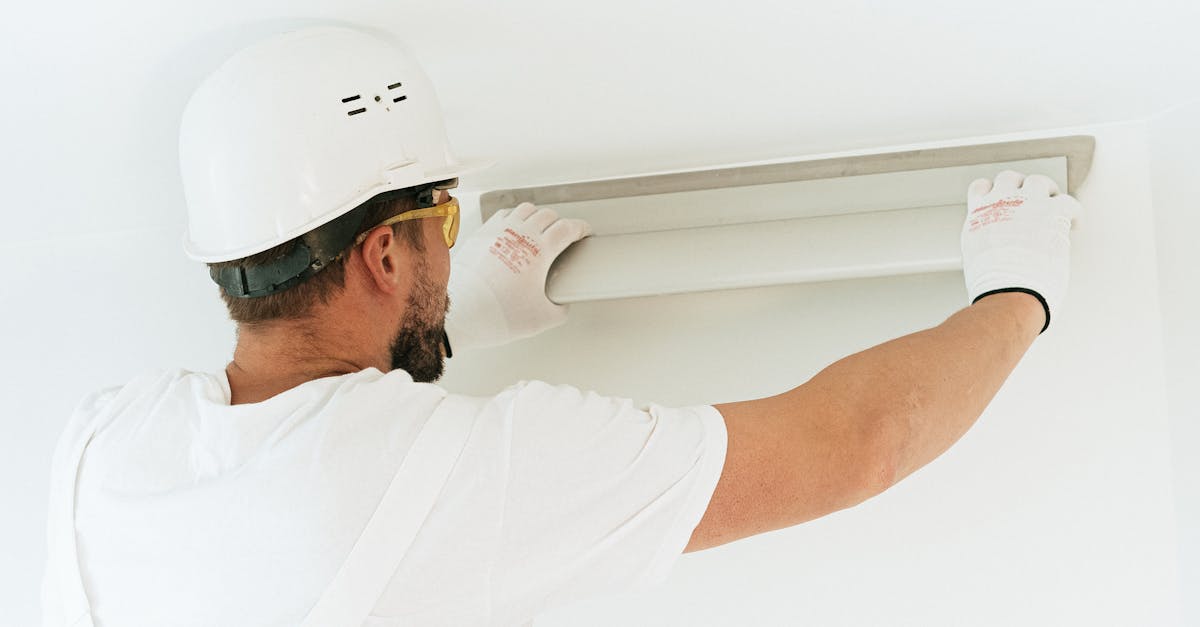Benefits of Energy-Efficient HVAC Systems for Brisbane Commercial Spaces

Table Of Contents
Reliability and Reduced Maintenance
Energy-efficient HVAC systems offer enhanced reliability, which is critical for commercial spaces in Brisbane. These modern systems are designed to operate efficiently under varying loads, resulting in fewer breakdowns and a consistent indoor climate. Businesses benefit from reduced interruptions, allowing for better productivity and a more comfortable environment for employees and customers alike.
Maintenance requirements are also significantly lower with energy-efficient models. Advanced technologies often incorporate self-diagnostic features that alert users to potential issues before they escalate. This proactive approach not only prolongs the lifespan of the equipment but also minimises unexpected repair costs. Regular maintenance schedules can be streamlined, ultimately saving time and resources for businesses.
Longevity of Energy-Efficient Equipment
Energy-efficient HVAC systems are designed with advanced technologies that enhance their durability. High-quality components and improved engineering significantly reduce the stress placed on machinery during operation. This leads to fewer breakdowns and a longer operational life compared to standard systems. Businesses can benefit from lower replacement costs over time, maximising their investment in these systems.
Regular maintenance and the inherent resilience of energy-efficient equipment also contribute to sustained performance. As these systems operate more efficiently, they generate less excess heat and wear, further extending their lifespan. Owners of commercial spaces in Brisbane will find that the longevity of energy-efficient HVAC systems not only reduces disruptions but also contributes to a stable indoor climate for employees and customers alike.
Compliance with Regulations
Brisbane businesses face a range of regulations aimed at reducing carbon emissions and promoting energy efficiency. Compliance with these regulations is essential not only for legal adherence but also for enhancing corporate reputation. Companies that invest in energy-efficient HVAC systems benefit from meeting these standards, avoiding potential fines and penalties.
Adopting energy-efficient technologies can also make it easier for businesses to achieve sustainability certifications. These certifications can significantly boost a company's profile among environmentally conscious consumers. Greater focus on regulatory compliance fosters a culture of responsibility, leading to a more sustainable future for the wider community.
Meeting Brisbane's Environmental Standards
Brisbane faces strict environmental guidelines aimed at reducing carbon emissions and maintaining air quality. Implementing energy-efficient HVAC systems contributes significantly to these goals. These systems not only decrease energy consumption but also lower greenhouse gas emissions. By prioritising such technologies, businesses can play an essential role in promoting sustainability within the community.
Adhering to local regulations enhances a company’s reputation among clients and stakeholders. Customers increasingly prefer businesses committed to environmental responsibility. Using energy-efficient HVAC systems demonstrates a proactive approach toward compliance, ensuring that companies meet the latest standards while fostering a healthier environment. This commitment can lead to long-term benefits, including potential incentives from government programs aimed at promoting green initiatives.
Greater Flexibility and Control
Modern energy-efficient HVAC systems offer advanced features that allow businesses to exert greater control over their indoor environments. Programmable thermostats enable users to set specific temperature preferences for different times of the day, promoting comfort while optimising energy usage. Customisable zoning systems ensure that specific areas are heated or cooled according to their individual requirements, providing tailored climate control that enhances productivity and satisfaction among employees and customers alike.
Integration with smart technology further amplifies this flexibility. Remote access features empower managers to monitor and adjust HVAC settings from anywhere, allowing for immediate responsiveness to any changes in occupancy or weather conditions. This capability not only maximises energy savings but also ensures that each space maintains its intended climate efficiently. The ability to make real-time adjustments fosters an environment conducive to both operational efficiency and employee wellbeing.
Smart Technology Integration in HVAC Systems
Modern HVAC systems increasingly incorporate smart technologies that enhance operational efficiency. These systems can automatically adjust settings based on real-time data, optimising energy consumption while maintaining comfort levels for occupants. Integrating smart technology allows for advanced features like zoning control, which directs heating and cooling to specific areas as needed, avoiding unnecessary energy expenditure.
Remote management capabilities also characterise these advanced systems. Facility managers can monitor and control HVAC performance from anywhere, ensuring timely adjustments and maintenance when required. Features like predictive maintenance notifications help identify potential issues before they escalate, further reducing downtime and enhancing the reliability of the HVAC system.
FAQS
What are energy-efficient HVAC systems?
Energy-efficient HVAC systems are heating, ventilation, and air conditioning units designed to use less energy while maintaining optimal indoor climate comfort. They often incorporate advanced technologies to enhance efficiency and reduce energy consumption.
How do energy-efficient HVAC systems benefit Brisbane's commercial spaces?
These systems can lower energy bills, reduce environmental impact, and increase the overall comfort of commercial spaces. They also require less maintenance and are often designed to last longer, providing reliable performance over time.
What regulations should Brisbane businesses consider regarding HVAC systems?
Businesses in Brisbane must comply with local environmental regulations and standards aimed at reducing energy consumption and greenhouse gas emissions. Energy-efficient HVAC systems can help meet these compliance requirements while improving overall sustainability.
How can smart technology integration enhance HVAC systems?
Smart technology can provide greater control over HVAC systems through automation and real-time monitoring. This allows businesses to optimise energy usage, improve indoor air quality, and create customised climate settings for different areas of a commercial space.
What is the expected lifespan of energy-efficient HVAC systems?
Energy-efficient HVAC systems typically have a longer lifespan compared to traditional units, often lasting 15-20 years or more with proper maintenance. This longevity can result in reduced replacement costs and increased returns on investment for businesses.
Related Links
Effective Insulation Strategies to Improve Energy Performance in OfficesIntegrating Energy Management Systems for Optimal Usage in Commercial Facilities
Upgrading to Energy-Efficient Appliances for Significant Cost Savings
The Impact of Building Orientation on Energy Consumption in Commercial Buildings
Exploring Battery Storage Solutions for Enhanced Energy Resilience
The Role of Smart Meters in Enhancing Energy Efficiency in Brisbane
Implementing Energy Audits to Identify Savings for Commercial Properties